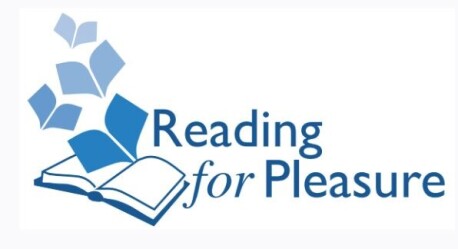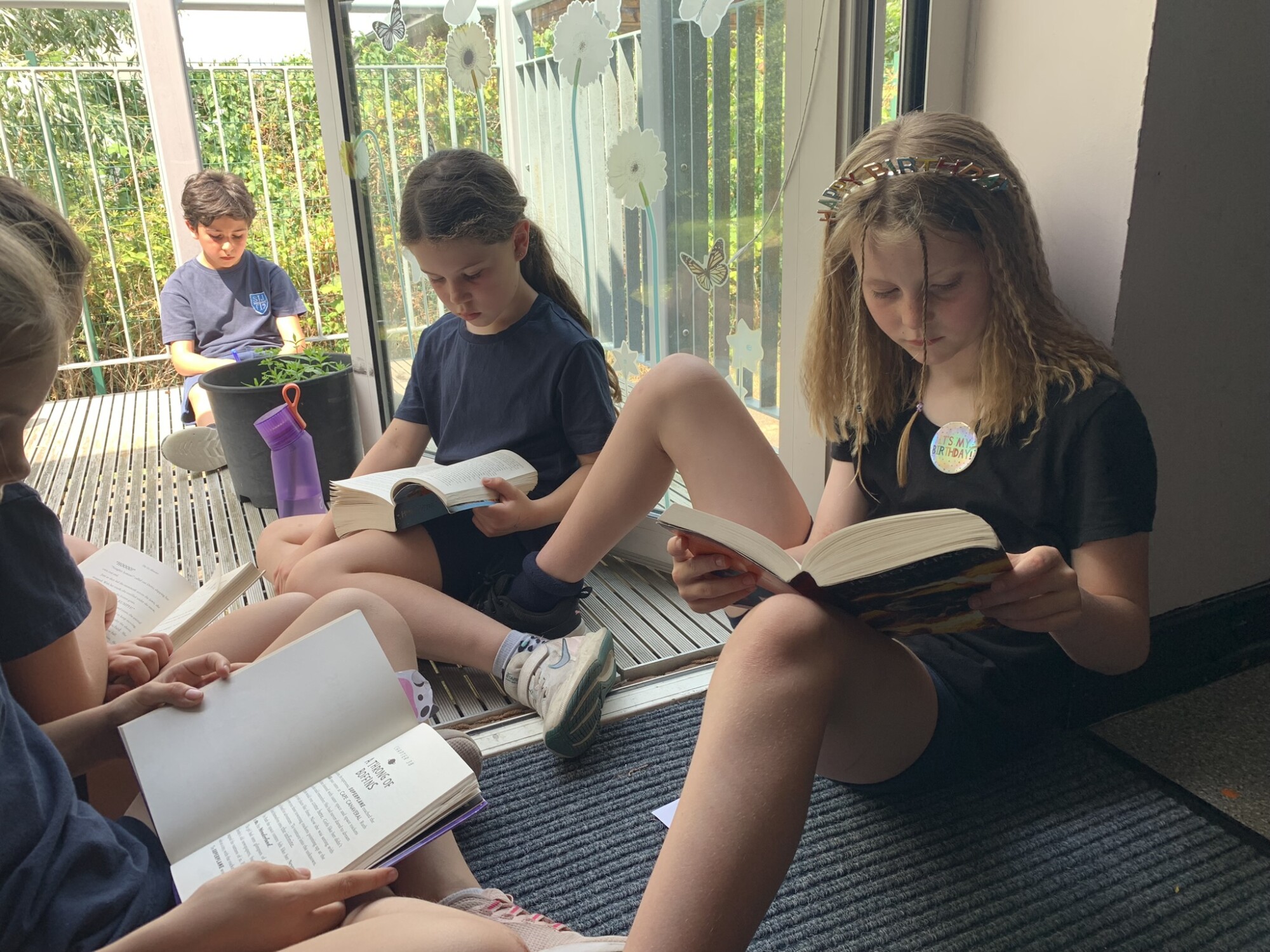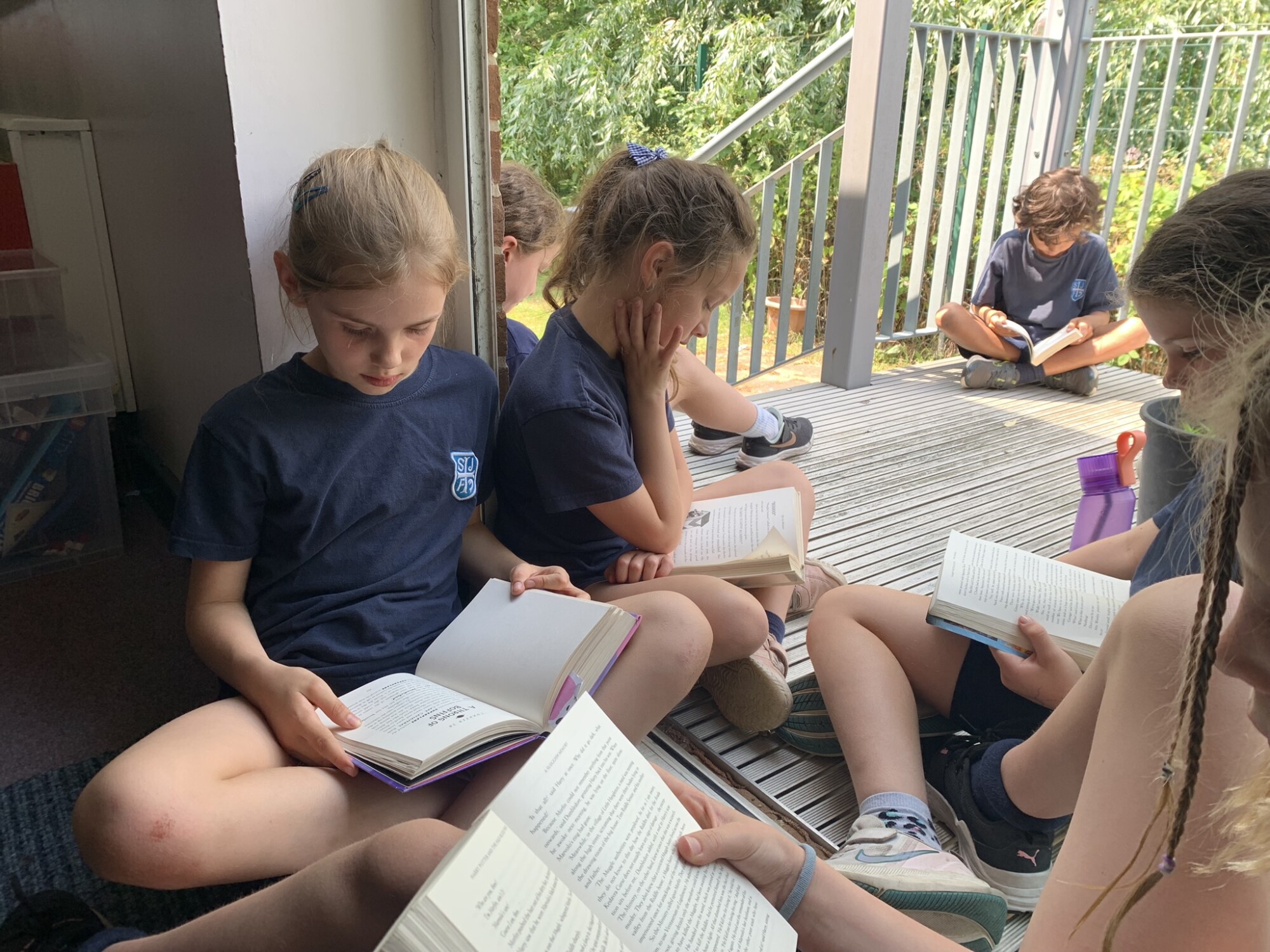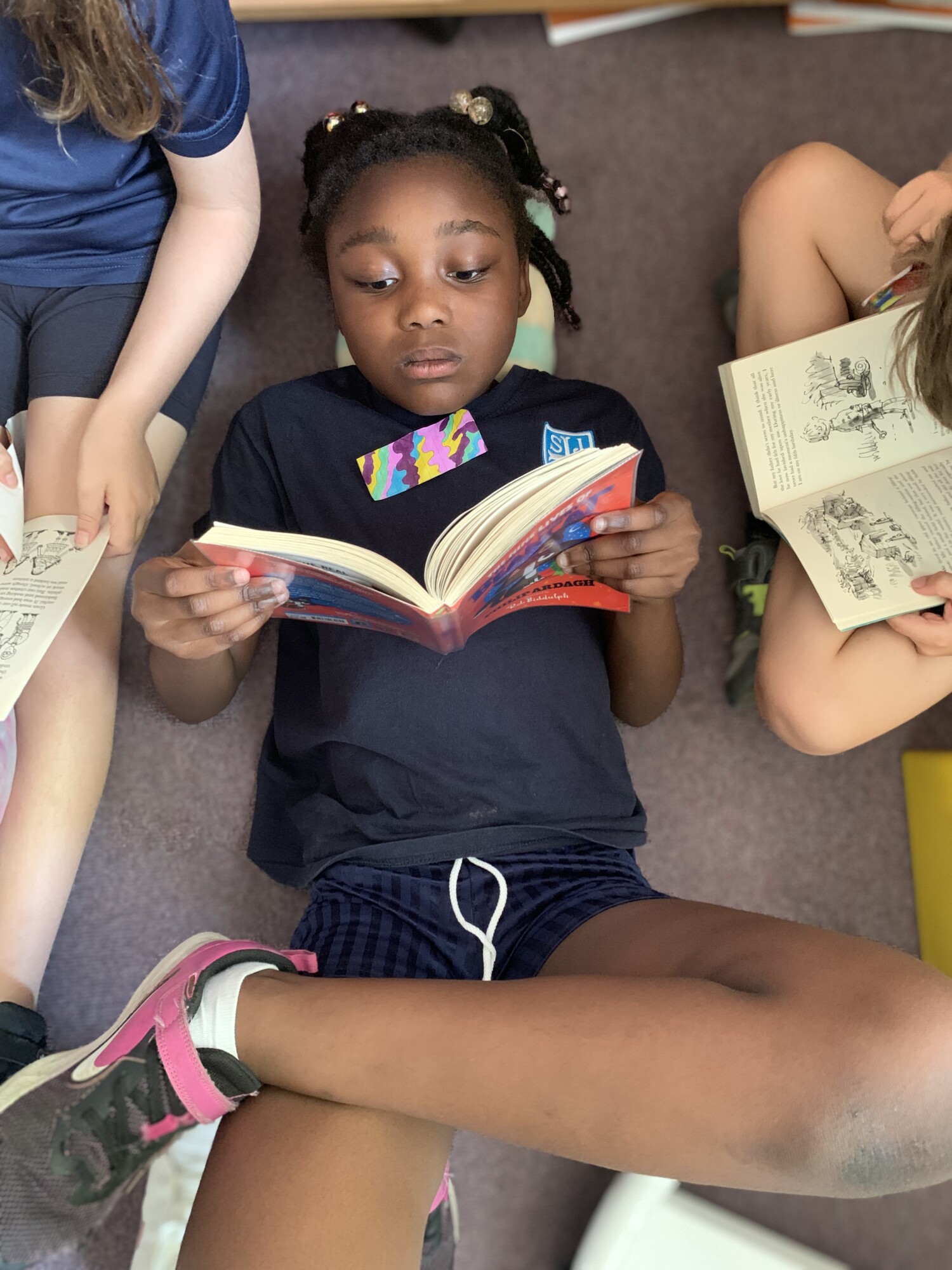Reading for Pleasure
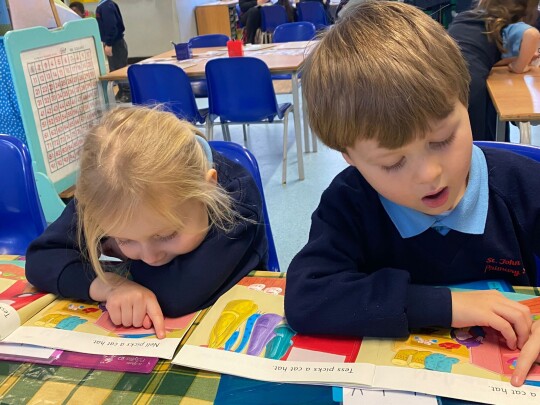 At St John Fisher we promote and encourage reading at every opportunity across the school. We believe that reading is the magical key that can unlock the door to a life long love of learning. We encourage pupils to read anywhere and everywhere! We recognise that the social environment can enhance our reading experience and we try to support this at every opportunity, adapting it to invite and encourage a love of reading.
At St John Fisher we promote and encourage reading at every opportunity across the school. We believe that reading is the magical key that can unlock the door to a life long love of learning. We encourage pupils to read anywhere and everywhere! We recognise that the social environment can enhance our reading experience and we try to support this at every opportunity, adapting it to invite and encourage a love of reading.
At St John Fisher we value the importance of reading aloud to children. EYRS and KS1 have story time every day, across KS2, each class has a class novel, which they read with their class teacher during 'Reading for Pleasure'. There is considerable evidence that reading aloud to children enables them to process challenging content, text features and vocabulary – even in subjects not normally associated with reading aloud, such as science and technology (Heisley and Kukan 2010). Furthermore, reading to 4-5 year olds more frequently has been shown to lead to higher reading, maths and cognitive skills at age 8-9 (Kalb and van Ours, 2013). We also have other times during the class timetable, where the pupils have 'Reading for Pleasure', plus 'Guided Reading' sessions timetabled throughout the week. All pupils have the opportunity to take home two books a week, if they choose, their staff allocated reading book and a chosen book from the reading corner in class.
Benefits to Reading for Pleasure (DfE)
There is a growing body of evidence which illustrates the importance of reading for pleasure for both educational purposes as well as personal development (cited in Clark and Rumbold, 2006).
• Evidence suggests that there is a positive relationship between reading frequency, reading enjoyment and attainment (Clark 2011; Clark and Douglas 2011).
• Reading enjoyment has been reported as more important for children’s educational success than their family’s socio-economic status (OECD, 2002).
• There is a positive link between positive attitudes towards reading and scoring well on reading assessments (Twist et al, 2007).
• Regularly reading stories or novels outside of school is associated with higher scores in reading assessments (PIRLS, 2006; PISA, 2009).
• International evidence supports these findings; US research reports that independent reading is the best predictor of reading achievement (Anderson, Wilson and Fielding, 1988).
• Evidence suggests that reading for pleasure is an activity that has emotional and social consequences (Clark and Rumbold, 2006).
• Other benefits to reading for pleasure include: text comprehension and grammar, positive reading attitudes, pleasure in reading in later life, increased general knowledge (Clark and Rumbold, 2006).
How to support your child with reading
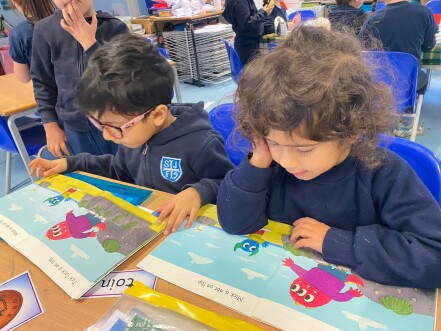
Reading Together Treasure Hunt Download
10 Top Tips To Hear Your Child Read Aloud To You

